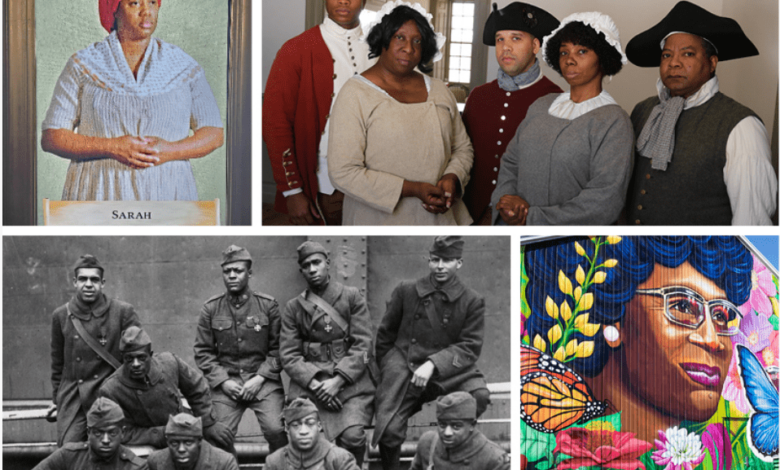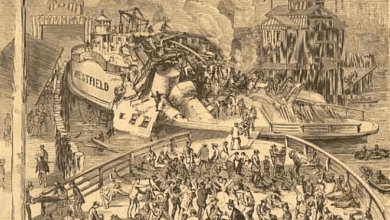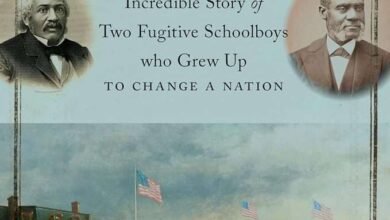New York State Parks Announces Black History Month Resources, Exhibitions, and Events


 The New York State Office of Parks, Recreation and Historic Preservation (State Parks) have announced a range of resources, exhibitions, and events to celebrate Black History Month in February.
The New York State Office of Parks, Recreation and Historic Preservation (State Parks) have announced a range of resources, exhibitions, and events to celebrate Black History Month in February.
In addition to unveiling significant updates to the agency’s Black History webpage, State Parks is sharing two exhibitions in the Concourse at the Empire State Plaza in Albany for the month of February to introduce a new interpretive Black History initiative, “Enslavement to Freedom,” slated to expand through 2027.
Black History events at state parks and historic sites are also being held throughout February, and the State Parks blog, social media channels and Parks Explorer App will elevate Black stories and voices linked to state parks and historic sites all month long.
To serve as a more comprehensive resource for park and historic site visitors, the Black History webpage has been revamped, now including an interactive story map where users can learn about various state parks and historic sites that hold historical significance to slavery between the Colonial and New Nation periods in the 17th, 18th, and 19th centuries.
The page now showcases four State Parks facilities that honor Black Americans who have shaped the United States through their contributions to our military, politics, and social movements. These include the Fort Ontario State Historic Site in Oswego, National Purple Heart Hall of Honor in New Windsor, and Marsha P. Johnson State Park and Shirley Chisholm State Park, both in Brooklyn.
To honor Black History Month, the Office of General Services (OGS) will host two State Parks traveling banner exhibitions from the new interpretive Black History initiative, “Enslavement to Freedom: 1627-1827-2027,” in the Concourse at the Empire State Plaza in Albany.
The first exhibit is a re-formatted copy of “Redefining The Family: One Descendant’s Journey Into History” that debuted at Clermont State Historic Site in July 2024, and the second is a new exhibit called “Poisonous Seeds: The Dutch and the Institution of Slavery in Early New Netherland/New York,” highlighting the latest research, and the arrival date of the first people enslaved in New York.
Throughout the month of February, OPRHP interpretive staff and environment educators are planning to facilitate educational events and programming covering Black scientists and space explorers, untold stories of the enslaved who staffed New York families at facilities now run by State Parks centuries later, and some of the ways the institution of slavery played out in New York.
People who would like to register for the of events and activities hosted at New York’s state parks and historic sites may do so through the OPRHP event calendar.
On the State Parks blog, a post will share informative video clips from last November’s successful Making History symposium at Philipse Manor Hall State Historic Site.
Social media content throughout February will feature under-told Black stories linked to state parks and historic sites. The Parks Explorer app will also showcase Black History Month content.
More about ‘Enslavement to Freedom: 1627-1827-2027′
In 2027, New York State will recognize the 200th anniversary of the end of legalized slavery in the state (1827) and the 400th anniversary of the arrival of the first Africans enslaved in the former New Netherland colony (1627).
State Parks is implementing a multi-year interpretive initiative called “Enslavement to Freedom: 1627-1827-2027.”
Relevant state historic sites are developing exhibits, public programs, and other educational resources to explore New York’s history with slavery and a pivotal period of transition for the Black community in early New York, which gives better context and understanding for later historic movements, like Abolition and the Underground Railroad.
The two exhibitions featured at the Concourse at the Empire State Plaza in February:
“Poisonous Seeds: The Dutch and the Institution of Slavery in New York”
In 2024-2025, New York State commemorates the founding of the colony of New Netherland. This seven-panel exhibit explores the path the Dutch West India Company took to lay the foundation of the institution of slavery, both the people enslaved, and the economic links to the trade that remained active in New York for the next 200 years.
“Redefining The Family: One Descendants Journey into History”
For generations, oral history regarding an ancestorial link to one of New York’s most prominent families, the Livingstons, remained hidden within a Black family.
At the request of his grandmother, Christopher Rabb began a genealogical search that resulted in DNA variation. This five-panel exhibit speaks to the work done by Raab and the extraordinary story of his ancestor, Christiana Taylor Livingston Williams.
The New York State Office of Parks, Recreation and Historic Preservation oversees more than 250 parks, historic sites, recreational trails, golf courses, boat launches and more, and welcomes over 88 million visitors annually. For more information on any of these recreation areas, visit parks.ny.gov.
Read about New York State’s Black History.
Illustration provided.
Source link





